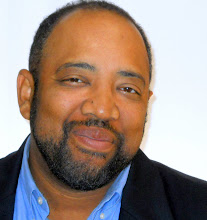Buried deep in Sport Illustrated senior reporter Peter King's most recent edition of Monday Morning Quarterback (a must read for any fan of good journalist), he tells the tale of being a beat writer and spending two hours with Bill Parcells, visiting the notoriously cranky coach's childhood haunts.
King notes that he can't imagine any beat writer having that kind of access to a pro football coach these days. The pressures have changed on both sides of the equation.
Those pressures mean less time less time to develop the relationships that lead to that kind of access. While the shrinking outreach of the media has change some parts of how media relations, it does not mean the industry will follow the way of the Dodo. Good PR can still repair images and grow bottom lines.
For Exhibit A, let me refer you to the media barrage Tiger Woods's PR machine has stoked up ahead the Thanksgiving weekend that lead to his fall from nationwide billboards. Tiger's troubles began when it turned out that his family man image was a sham. Restoring Tiger's image as the face of American marketing starts with recreating his family guy image. In the past week, we have been subject to a round of "Tiger Woods the World's Greatest Dad" stories.
Brilliant as a strategy but ineffective as a quick look on Google finds plenty about affairs and divorces but nothing on the good dad Tiger.
Of course, returning to his ways as the most dominant player in golf would do more to reclaim his corporate image than any series of father knows best articles.
Winning drives decisions in the NFL too. In 2010, season tickets sales fell for the third straight year, and three teams that moved into spiffy new homes for the new 2010 season are on the hook for very high construction costs. Even though the television rights paid to the league have climbed faster than basic cable rates (in 1986, the networks combined to pay the league $420 annually while the current contract calls for a shade over $3 billion annually), winning puts fannies in the seats, especially the expensive comfortable ones with licensing and VIP parking.
This season two head coaches lost their jobs in mid-campaign, an unprecedented event in the NFL. Normally conservative owners prefer to clean house at the end of the year. But we live in unusual times and importance of image management is paramount. Ask Tiger's management team.
Many have discounted the power of PR, but in billion-dollar commercial enterprises PR folks have engaged in media relations programs that because they think it will drive top line success.
Over the weekend, Robert Scoble asked the reoccurring question: why do we need the tech media? If you skip down and read iSocialize's metrics of what works and what doesn't, you understand how the media recognition drives sales. Even Scoble acknowledges that Apple watches the media buzz to see what companies to promote, making PR an effective use of marketing dollars for the successful companies.



